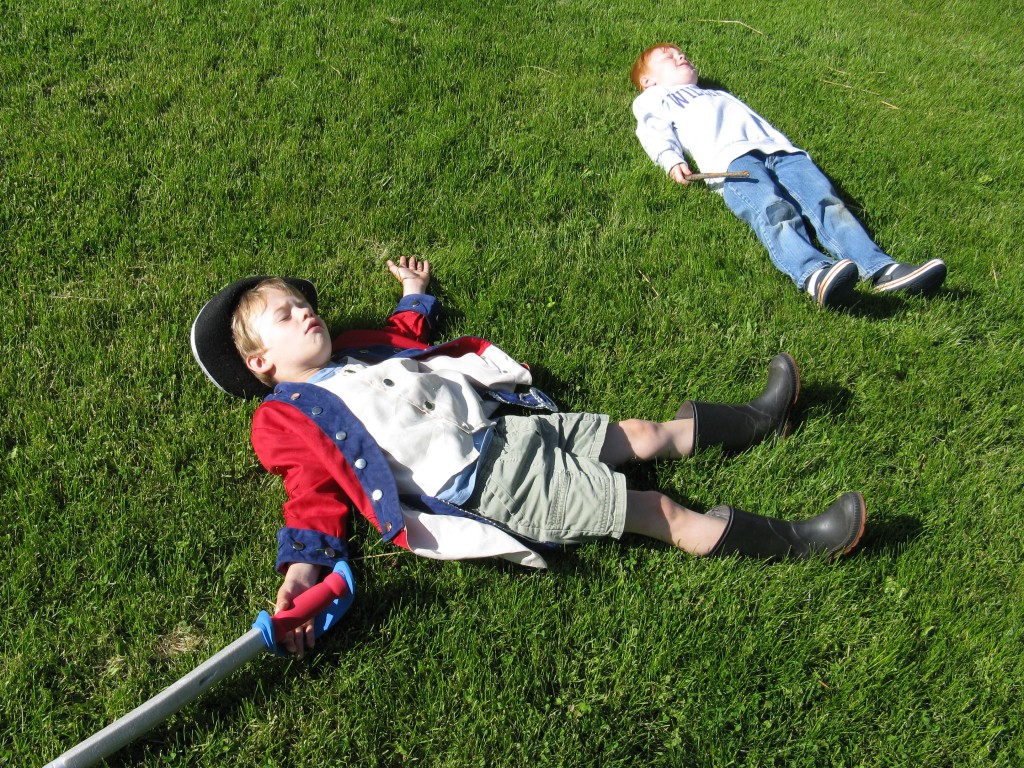Playing Dead
It's easy to idealize childhood. Sometimes we forget just how much young kids have to grapple with. Death, for instance. Even kids who have not been personally touched by death are trying to understand mortality.
Think about it. A young child, about age 3-5, must wrestle with startling new information. That's about the age kids learn about death. That they will die. That mom and dad will die. That all living things will someday die.
I still remember when I learned that I was mortal. I was around age 4. I knew about people dying in story books, but it was amazing and puzzling to realize that I, too, would someday cease to exist.
This is powerful stuff, and when young children encounter powerful ideas, they need to explore them through play. "We going to die and fall in the deep blue sea and turn into little crumbs of people," a child might say. Some children play games of funeral. Some ask lots of "morbid" questions. Others incorporate frequent pretend death into their dramatic play. "You're dead. You killed me. New guy." They lie still and try not to breathe. Play is the way young children process the immense fact that they will die someday.
Beginning to understand the concept of death is a major task of the preschool years.
Next time you witness kids playing dead in a game, look beyond the idea of war games. Games of life and death are vital for children to explore. It's child's play, but it's a whole lot more.
Do you talk with children openly about death? How have your children expressed their interest in death? What play involving death bothers you?
